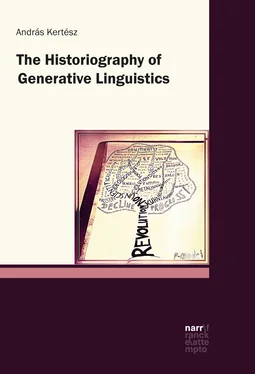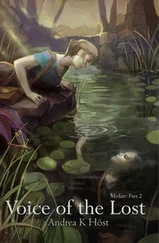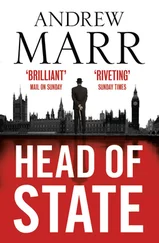András Kertész
The Historiography of Generative Linguistics
Narr Francke Attempto Verlag Tübingen
[bad img format]
© 2017 • Narr Francke Attempto Verlag GmbH + Co. KG
Dischingerweg 5 • D-72070 Tübingen
www.francke.de• info@francke.de
Das Werk einschließlich aller seiner Teile ist urheberrechtlich geschützt. Jede Verwertung außerhalb der engen Grenzen des Urheberrechtsgesetzes ist ohne Zustimmung des Verlages unzulässig und strafbar. Das gilt insbesondere für Vervielfältigungen, Übersetzungen, Mikroverfilmungen und die Einspeicherung und Verarbeitung in elektronischen Systemen.
E-Book-Produktion: pagina GmbH, Tübingen
ePub-ISBN 978-3-8233-0068-7
»[…] controversy is the breath of science and when we all agree it will be only because our science is dead.« (Emmon Bach 1965: 128)
Over the past decades, the historiographyhistoriography of linguistics has progressed from being a peripheral, understated discipline practiced by only a few to becoming a prospering and recognized subfield of linguistics producing an extensive academic literature.1 A literature which has many prominent authors and receives international institutional support: renowned publishing houses publish journals, book series and monographs related to the historyhistory of linguistics. Societies of linguistic historiography have been established and a large number of conferences are regularly organized. What has motivated this dynamic development of linguistic historiography? Two factors seem to be of relevance:
(a) A cardinal motivation behind the boost in linguistic historiographyhistoriography research has been the revival of a general interest in the historyhistory of science . In the second half of the twentieth century the central claims of the analytical philosophy of sciencephilosophy of science – involving both logicallogic positivism and critical rationalism – were drastically shaken (not exclusively but decisively) as a result of KuhnKuhn, Thomas S.’s The Structure of Scientific Revolutions. It has been in the work of Kuhn (1970) [1962], and later LakatosLakatos, Imre (1970a), (1970b) that among others, the view that there is a close interaction between the philosophy and the historiography of science, has been put forward,2 and that, accordingly, the foundational problems of scientificscientific inquiry are related to the processes of the history of science.3
(b) The other factor that has motivated the emergence of linguistic historiographyhistoriography has been the successful development of linguistics throughout the twentieth century. One of the reasons why linguistic historiography might have attracted increasing interest is that the most successful trends in linguistics – Saussure’s structuralismstructuralism, the Prague Linguistic Circle, American descriptivism, generative linguistics and others – influenced trends in twentieth century science even outside linguistics, thereby contributing to the re-organization of particular disciplines, and fostering the integration of the findings produced in a range of fields.4 Generative linguistics stands out in this process as the most fiercely debated but still most influential school in linguistics in the second half of the twentieth century. Not only has it triggered substantial changes in linguistics, it has also contributed to the debates of other disciplines, especially the subdisciplines of cognitivecognitive science, the philosophy of languagelanguage and the philosophy of sciencephilosophy of science.
One consequence of the interplay between the growing general interest in the historiographyhistoriography of science and the controversial reception of generative linguistics is that besides the field of generative linguistics itself, the historyhistory of the field has also moved into the center of attention. Another consequence is that there is an extreme diversity of historiographical approaches to generative linguistics competing with each other, and, as is quite well known, most of them are spectacularly biasedbias . This state of affairs greatly deepens the divided nature of linguistics, as is witnessed by the harsh criticism and at times extremely bitter debates among the different branches of linguistics. The third consequence concerns the fact that not only is the historiography of generative linguistics a metascientificmetascientific enterprise aiming at the investigation of its object , namely, the history of generative linguistics, but what is more – as we will see later –, historiography is at the same time also used as the tool of linguistic argumentation, which can effectively be applied in arguing either for or against generative linguistics. Therefore, it has an impact on its own object of investigation , namely, on certain processes of the development of generative linguistics and its relation to rival trends.
However, despite the factors mentioned above and their consequences, so far no systematic analysis of the historiographicalhistoriography approaches to the historyhistory of generative linguistics has been available. In the present monograph we attempt to fill this gap.
The book has – within the limits of a short monograph – a threefold aim:
| (A) |
(a) |
Our first aim is to provide an unbiased, balanced and impartial overview of the pluralismpluralism of the approaches documented in historiographicalhistoriography literature. |
|
(b) |
The second aim of the book is to reveal the factors which may weaken the credibility of the historiographicalhistoriography positions to be discussed. |
|
(c) |
Our third aim is to demonstrate in a case study the workability of a new historiographicalhistoriography approach which goes beyond the limits of current approaches and which may shed fresh light on the historyhistory of generative linguistics. |
We will join neither the proponents nor the opponents of generative linguistics. We confine the overview and the systematic analysis of the state of the art to approaches which explicitly define themselves as historiographicalhistoriography . The linguistic debates raised by ChomskyChomsky, Noam’s works are outside the scope of the present study.
In accordance with aims (A)(b) and (A)(c), the book is intended to enrich the historiographyhistoriography of linguistics. Therefore, it may attract the attention of both linguists interested in the historyhistory of science, and historians of science interested in linguistics. However, the book presupposes only a basic knowledge of linguistics. It does not assume research skills or detailed knowledge of linguistic theorizing, the history of linguistics, nor the philosophy of sciencephilosophy of science. The background information necessary for the understanding of our line of reasoning will be concisely introduced. Thus, due to the systematic overview of the state of the art in accord with aim (A)(a) mentioned above, the monograph can also be useful for graduate and undergraduate students of linguistics.
I am grateful to the referees as well as to Ferenc KieferKiefer, Ferenc, Edith A. MoravcsikMoravcsik, Edith A., Frederick J. NewmeyerNewmeyer, Frederick J. and Csilla RákosiRákosi, Csilla for helpful comments on earlier drafts. My special thanks are due to Katinka HalászHalász, Katinka for her insightful contribution to the improvement of my work and the cover design. Any remaining shortcomings are entirely my own responsibility. I also thank Elsevier and John Benjamins for permission to include in the present volume excerpts from the following publications: »From ›scientificscientific revolutionrevolutionscientific‹ to ›unscientific revolutionrevolutionunscientific‹. An analysis of approaches to the historyhistory of generative linguistics.« Language Sciences 32 (2010), 507–527; »Two notions of ›research programresearchprogram‹ and the historiographyhistoriography of generative linguistics.« Historiographia Linguistica 37 (2010), 165–191.
Читать дальше












